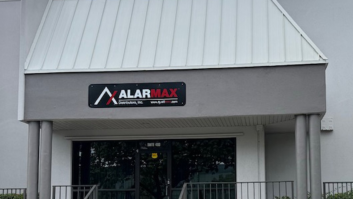Fear and loathing of the Internet was almost nonexistent at this year’s PARA (Professional AudioVideo Retailers Association) conference, but the medium’s challenges and opportunities were still hot topics during the association’s 21st annual event.
With their sales and profits rising, and the stocks of e-commerce sites diving, A/V specialists and custom dealers expressed confidence that the Internet was less of a threat than many of them thought only a year ago. In fact, in a session reviewing e-commerce activities in the electronics industry, presenter Steve McNaur said, “E-tailing is not necessarily happening in our [A/V specialty] industry.”
McNaur, who owns a rep company, said all of the sites he reviewed “aspire to the highest level of customer interaction to buy your loyalty” and therefore present a challenge to specialty retailers. Nonetheless, the big e-commerce sites “are all trying to sell the same low-end stuff.” Although some specialty A/V brands are sold online, he said, most brands sold online are “all brands we differentiate ourselves from.”
“Upscale vendors” are jumping into e-commerce, McNaur acknowledged, but only the “pretty open lines” are sold online, while “less-open lines” are “handed off” to local dealers to fulfill.
Although the Internet might not be the threat that specialists initially feared, a pair of keynote speakers warned that specialty retailers must nonetheless adjust their business strategies in recognition of the Internet’s influence on people’s buying habits.
“You must manage behavioral changes in the Internet environment,” said one keynote speaker, author Chuck Martin. Companies are retraining their employees “to buy and work on the net,” and as a result, “their behavior as consumers will change.”
Another keynote speaker, author and business consultant B. Joseph Pine advised dealers of other market changes that the Internet is reinforcing.
“The Internet is the greatest force of commoditization ever invented,” he said. In the past, “services became more important because customers valued the service, not the goods,” Pine pointed out. “But now, services are becoming a commodity,” thanks in part to online sales by Internet companies such as Priceline.com and to sites whose artificial intelligence helps consumers qualify themselves.
As a result, “goods and services are no longer enough” for specialty retailers to succeed, Pine warned. “We must stage experiences for our customers.” Retail stores must deliver an “engaging experience” that gives consumers “a reason to come to your store and not to a big-box store that sells commodities, or to the Internet.”
“The A/V dealer sells experiences, not goods, and if you don’t sell experiences, your goods and services will plummet in value, too,” he maintained.
Keynote speaker Martin downplayed the importance of online sales for specialty retailers but urged PARA members to harness the net to market themselves. “You must leverage the net to bring in your customer base,” he said. “I don’t think that [selling online] is where the money is [for A/V specialists].”
The volume of online business-to-business sales is 10 times greater than that of consumer e-commerce, said Martin. And in 2001, 80% of online transactions will be b-to-b. “The money,” he said, “is in the back.”
Given that, Martin urged dealers to “create an extranet organized around your customers” because “the real opportunity for you is in one-to-one business.” The Internet will enable specialists to “build relationships electronically and physically.”
Individually, dealers should design interactive websites that operate “as an interface with a customer” to provide data about potential and existing customers, he added.
Collectively, small dealers should band together “to use one platform with the same look and feel,” and if customers move, their files should transfer to the store nearest their new residence.
Martin also advised the specialty industry to consider a strategy pursued by the American Railroad Association, which lets business customers enter its site to seek bids from multiple railroads rather than negotiate with one railroad at a time. The site makes it possible for the railroad industry to compete more effectively with the trucking industry to increase railroads’ share of the transportation pie, and “specialists could do the same to take share away from mass merchants,” he claimed. “It’s almost essential you do something like that.”
Dealers could also use the net to aggregate their excess inventories and put the products up for auction. “The price goes up when you aggregate supply,” Martin said.
PARA members interviewed agreed that the Internet offers them a range of opportunities, and they said they feel less threatened by it.
Said PARA member Jeff Hoover, owner of Audio Advisors in West Palm Beach, Fla., “There is less fear about the Internet, and retailers appreciate the opportunity more.” There’s less fear in part because “there’s no way the market will support that many online companies,” he said.
Madrigal sales director David Nauber, a member of PARA’s manufacturers’ advisory council, also detected a different attitude among dealers and said, “Last year, people were concerned about the future of the Internet. Now they realize it won’t put them out of business.”
PARA treasurer Leon SooHoo agreed. “We’ve become more clear on where the business model is headed, and it’s not as threatening as a year ago,” he said. The business model has moved “more toward using the net to communicate why someone should come to the store.”
The conference’s Internet message also changed in line with specialists’ changing perception of the medium. Last year’s conference, participants said, not only focused on using the Internet to market the brick & mortar experience, it also raised the controversial issue that specialists might have to sell some products online to survive in the Internet era.
If online sales aren’t necessary for survival, at least some specialty retailers and manufacturers see them as a welcome bonus. Getplugged.com, for example, has agreements with such specialty suppliers as Nakamichi and Rotel to participate in the site’s e-commerce strategy, Sunil Mehrotra, CEO of parent company KnowledgeLINK, told TWICE during the event.
Under this strategy, consumers who buy through Getplugged.com could be handed off to a manufacturer’s authorized brick & mortar dealers if they live in the dealer’s authorized trading area. The dealer would fulfill the order from his own inventory.
“Some manufacturers let some authorized retailers ship products to consumers, but other dealers must deliver personally or have customers come in to pick it up,” Mehrotra noted.
To date, five vendors have given KnowledgeLINK “blanket approval” that enables any of their brick & mortar dealers to participate in fulfilling online orders placed through the getplugged.com site. Those vendors include B&W, Nakamichi, Rotel and Thiel.
Another 11 vendors have agreed to authorize their dealers on a case-by-case basis to fulfill online orders from their inventory. Those vendors include Audiophile Systems, Bose, Denon, Madrigal’s Levinson and Proceed brands, Meridian, Parasound, Sony’s non-ES line, and Velodyne.
So far, 17 retailers are fulfilling orders from their inventory, but a total of 31 have been authorized to do so by select vendors and are about to come online, sales director Howie Diamond later told TWICE. The 31 operate about 73 retail storefronts. KnowledgeLINK’s goal is to expand the number of authorized dealers selling from their inventory to 50, with about 105 storefronts, during the spring.
In addition to the products available from the inventory of these dealers, the Getplugged.com site sells relatively open lines from the inventory of affiliated distributors. Those lines include AudioSource, Go Video, JVC and Panasonic.
Lew Brown, president of etown.com, also uses dealers to fulfill orders. Because of such e-commerce strategies, Brown said, A/V specialists “are recognizing that it [e-commerce] is a supplement to brick & mortar retailing” rather than a disruptive competing channel. E-commerce, he said, “is becoming less frightening to them.”
For this reason, said keynote speaker Martin, whereas “brick & mortar used to be a liability, now it has become an incredible asset.” He foresees more “integration of the physical and online worlds” and pointed to Circuit City’s e-commerce site as an example. That site lets consumers peruse a store’s inventory and purchase a product online from that store’s inventory, but the consumer must pick up the product at the store.












